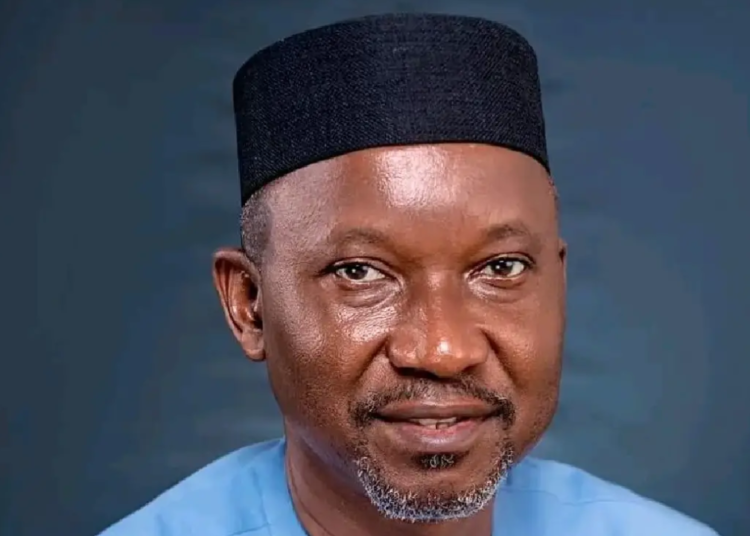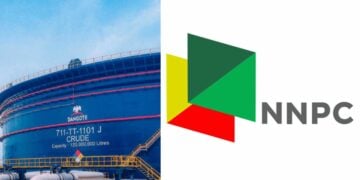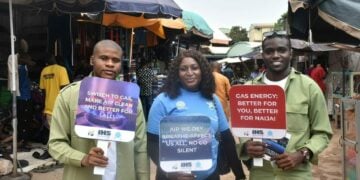Minister of State for Petroleum (Gas), Hon. Ekperikpe Ekpo, has said Nigeria’s downstream sector continues to face issues related to infrastructure deficit, market vulnerability, supply chain inefficiencies and the need for regulatory clarity.
Ekpo spoke at the first annual downstream petroleum week organised by the House of Representatives Committee on Petroleum Resources (Downstream) at the National Assembly Complex in Abuja yesterday.
He said addressing these challenges requires sustained collaboration between the executive and legislature, underpinned by sound policy direction and consistent implementation as well as enhanced private sector participation, investment in technology and adherence to global practices.
The minister said, over the past few years, Nigeria’s downstream sector has recorded remarkable development from the implementation of deregulation policies and liberalisation of the petroleum market to renew private investment in domestic refining and storage capacity.
“We are also witnessing transformation in our gas value chain as part of the sense of urgency of President Tinubu’s renewed Hope Agenda . The Take Care of Gas initiative is driving an ambitious programme to deepen domestic gas utilisation, expand infrastructure and accelerate the transition to cleaner energy, such as compressed natural gas CNG and liquefied natural gas and petroleum gas LPG.
“These efforts are designed to enhance energy accessibility, reduce dependence on imported fuels and create new economic opportunities for Nigerians, from households and small businesses to large scale industries.
“However, while these achievements are commendable, we must also be honest about the challenges that persist. Our downstream sector continues to face issues related to infrastructure deficit, market vulnerabilty, supply chain inefficiencies, and the need for regulatory clarity.
“Addressing this requires sustained collaboration between the executive and legislature, underpinned by sound policy direction and consistent implementation. It is also a call for enhanced private sector participation, investment in technology, and adherence to global practices.
“As policymakers, regulators and operators, we must ensure that reforms are people-centered, designed to make magnitude more affordable, accessible and sustainable for all Nigerians,” he added.
Also speaking, chairman of the House Committee on Petroleum (Downstream), Hon. Ikenga Imo Ugochinyere disclosed plans to introduce a new legislation that will grant local refineries the first right of refusal on crude oil allocations.
Ugochinyere said the House would also develop a Refinery Protection and Promotion Bill to classify refineries as strategic national assets—ensuring they receive priority protection and support.
The proposed law, he added, will guarantee unhindered access to crude feedstock and safeguard refinery operations across the country.
According to him, the measures are crucial for sustaining investor confidence, creating jobs, and strengthening Nigeria’s energy independence.
He commended the Nigerian Upstream Petroleum Regulatory Commission (NUPRC) for enforcing the Domestic Crude Oil Supply Obligation (DCSO) on all producers, describing it as a bold move that guarantees local refineries—both modular and conventional—access to crude before export allocations are made.
“It represents a decisive shift from policy rhetoric to practical support for local value addition, job creation, and energy independence,” Ugochinyere stated.
“By ensuring that every barrel of Nigerian crude first serves the Nigerian refinery, the NUPRC has sent a strong signal: Nigeria will refine what it produces and consume what it refines.”
Acknowledging recent labour concerns involving Dangote Refinery and sector unions, the lawmaker noted that such challenges are not uncommon in developing economies but must not be allowed to undermine productivity and national stability.
He urged labour unions and industry operators to pursue dialogue over disruptions, assuring that the committee stands ready to facilitate peace, fairness, and mutual respect in industrial engagements.
“Our shared goal must be to protect jobs, sustain businesses, and promote Nigeria’s economic sovereignty. Compliance with tax, safety, and environmental standards is not optional—it is a patriotic duty and a mark of true partnership in national development,” he said.
Ugochinyere also commended the NMDPRA, NUPRC, marketers, and other critical industry stakeholders such as PETROAN, NOGASA, MEMAN, NARTO, IPMAN, NGA, DAPPMAN, and depot owners who continue to sustain the nation’s energy supply chain despite challenging conditions.
Declaring the conference open, Speaker Abbas Tajudeen, represented by his deputy, Hon. Benjamin Kalu, said Nigeria’s oil and gas industry is witnessing an unprecedented revival under the leadership of President Bola Tinubu, noting that the effective take-off of the Dangote Refinery marked a turning point in the nation’s quest for energy self-sufficiency.
He added that the anticipated rise of other indigenous private refineries underscores the need for the National Assembly to continue creating an environment that enables industries to thrive.
Abbas described the conference as an important platform to galvanize key stakeholders toward genuine national development, noting that such engagements foster inclusiveness and strengthen citizens’ trust in government institutions.
He, however, emphasised that more work remains to be done, particularly in addressing infrastructure deficits that have hampered full optimisation of Liquefied Petroleum Gas (LPG) and Compressed Natural Gas (CNG), as well as tackling pipeline vandalism, energy security, and dubious pricing mechanisms in the sector.
The speaker urged participants to develop a roadmap for sustainable energy practices and explore emerging opportunities in solar, wind, and hydroelectric technologies to secure Nigeria’s energy future.





